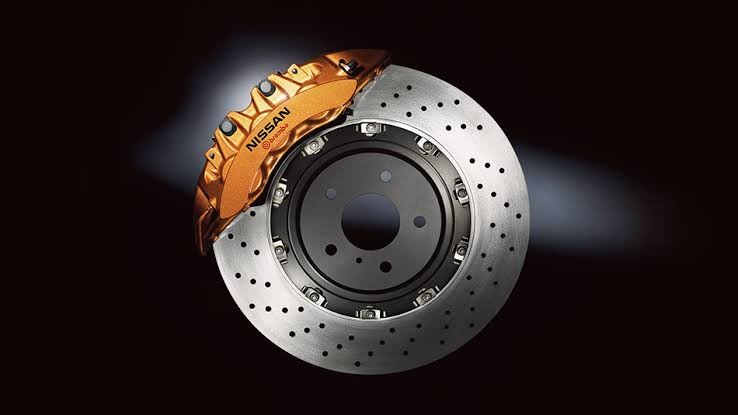The holes on brake discs serve multiple purposes, including cooling, water and debris dispersion, weight reduction, aesthetics, and improved initial bite. These design features contribute to better braking performance and safety, particularly in demanding driving conditions.
The holes on brake discs serve multiple purposes, including cooling, water and debris dispersion, weight reduction, aesthetics, and improved initial bite. These design features contribute to better braking performance and safety, particularly in demanding driving conditions.
- Cooling: The holes, also known as "ventilation" or "drilled" holes, help in dissipating heat generated during braking. When the brakes are applied, friction is created between the brake pads and the brake discs, generating a substantial amount of heat. The holes allow air to flow through the discs, facilitating faster heat dissipation and reducing the risk of brake fade.
- Water and debris dispersion: The holes also aid in dispersing water, dust, and debris that may accumulate on the brake discs. In wet conditions, the holes help to prevent the formation of a water film between the brake pads and discs, ensuring better contact and improved braking performance. Additionally, the holes assist in removing debris such as brake dust, small rocks, or other particles that may get trapped between the pad and disc surface, preventing potential damage or reduced braking effectiveness.
- Weight reduction: By incorporating holes into the design, brake disc manufacturers can reduce the overall weight of the disc. This reduction in weight can have a positive impact on the vehicle's overall weight distribution, handling, and fuel efficiency.
- Aesthetics: The presence of holes on brake discs can also have aesthetic benefits, giving them a sportier or more aggressive appearance. Many car enthusiasts appreciate the visual appeal that drilled brake discs provide, enhancing the overall look of the vehicle.
- Improved initial bite: The holes on the brake discs can enhance the initial bite or responsiveness of the brakes. As the brake pads make contact with the discs, the holes provide additional edges or edges, creating more friction points and aiding in quicker engagement of the brakes.
- Considerations: While drilled brake discs offer certain benefits, it is important to note that they may be more prone to cracking or premature wear compared to solid discs. The presence of holes can create stress concentration points, especially under extreme braking conditions or in aggressive driving scenarios. Therefore, it is essential to choose high-quality, properly engineered drilled discs and ensure regular inspections and maintenance to address any potential issues.

Comments (0)
Please login to join the discussion
Be the first to comment on this article!
Share your thoughts and start the discussion